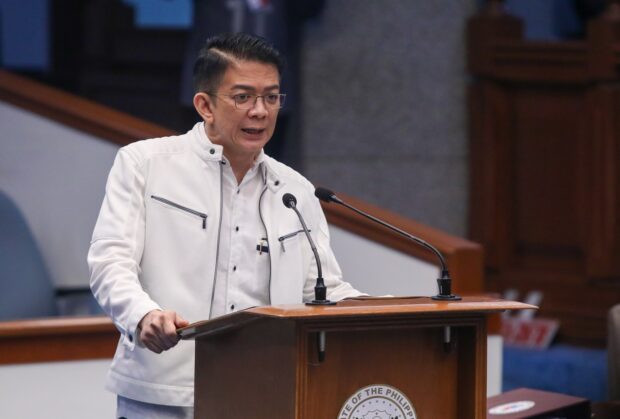Keep watch on Maharlika Investment Fund, Escudero urges critics

Sen. Francis “Chiz” G. Escudero (File photo from the Senate Public Relations and Information Bureau)
MANILA, Philippines — Critics of the Maharlika Investment Fund (MIF) must remain vigilant despite its expected signing into law by President Ferdinand Marcos Jr., Sen. Francis Escudero said on Sunday as he underscored the Supreme Court’s critical role in resolving the measure’s contentious provisions.
“The world will not crumble just because the [MIF bill] won the votes of the majority in the Senate and the House of Representatives,” Escudero said in a radio interview.
“This only means that those who have doubts and concerns should continue to keep watch… Since it got the votes of the majority, we have to respect it because that’s democracy,” he said.
With 19 administration senators voting for Senate Bill No. 2020, or the MIF Act of 2023, the measure hurdled the chamber’s deliberations in the wee hours of May 31, the last day of the first session of the 19th Congress.
Only opposition Sen. Risa Hontiveros stood up against the bill, which Marcos had certified as urgent.
Article continues after this advertisementEscudero, who is also part of the supermajority in the Senate, was absent during the actual voting along with Senate Minority Leader Aquilino Pimentel III and the president’s elder sister, Sen. Imee Marcos.
Article continues after this advertisementEscudero reiterated that the MIF failed to satisfy the constitutional requirements on the creation of new government-owned and -controlled corporations, the main reason why he did not vote for the measure.
‘Test of viability’
He was particularly referring to the “test of economic viability” for the envisioned Maharlika Investment Corp., which he had demanded from the members of the President’s economic team.
However, the administration senator said he was merely given a “business proposal.”
“That document would have proven that the corporation that will be established would really earn profits,” Escudero said.
The same document, he added, would also have helped Solicitor General Menardo Guevarra defend the would-be law if or when it is challenged before the high court.
Escudero, however, admitted that the Constitution did not explicitly explain what the “test of economic viability” should contain.
“That’s the problem,” he said. “There was no clear definition for it. So this is a chance for the Supreme Court to clarify this, if ever. It will also guide the next Congress or the next administration.”